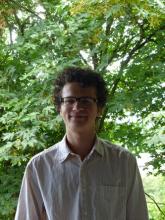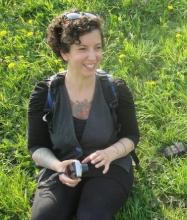The Bonderman Travel Fellowship offers University of Washington students an opportunity to engage in independent exploration and travel abroad.
Read below about where Holly & Blake will be travelling!
Blake Barnett

If I receive a fellowship, I would start traveling in Vietnam and work my way west stopping by core sites of the history of colonialism and modern food politics. Following these paths would provide insight into how cultures incorporate global phenomenon into their unique societies by looking at how meals are composed and consumed. Through the lens of street food and other common fare I could examine how average citizens interact with the broad processes of trade and development.
Looking at the global evolution of the modern food system as a consumer of global culture through regional delicacies will put me in intimate contact with the ideals I am fighting for. Interacting with people over meals that are part of their proud history and evolving landscape are what food justice is about. Seeing their faces and eating their food will personalize a lifelong cause reminding me why this work is important, and how it is always a joy.
Holly Candage

Because I believe transnational solidarity is an important factor that is often minimized, segregated to special interests categories, or left out completely from discussions surrounding globalization, I feel it is my responsibility to actively and persistently examine my role as a Western, white, female while cultivating my awareness regarding my role, my culture, and my nation’s role in differing power dynamics without presumptions of superiority, presumptions of understanding, or self hatred for privileges I possess.
Some of the questions I have been ruminating on concerning acquisition and distribution of knowledge whether through texts or empiricism are: How can we share, communicate, and commune without making statements of authority? How can we tap into power without exerting power? How can our minds, once they fix on an idea, remain flexible? How can we keep a “beginners” mind discarding the “expert?” And, how can action, empathy, and empowerment be accessed rather than guilt, sympathy, and charity? I hope my travels will help me with these questions.